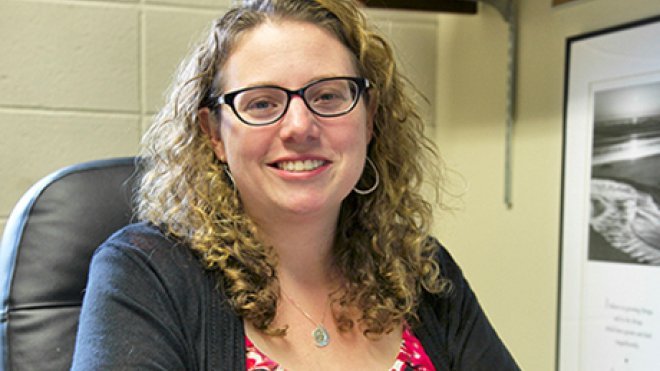RWU Hosts Training on Evidence-Based Interrogation
Program for police detectives from Rhode Island and Massachusetts comes amid national debate about whether torture works

PROVIDENCE, R.I. – Amid a national debate about whether torture works, the Roger Williams University School of Justice Studies hosted a week-long training program this month on evidence-based interviewing and interrogation techniques.
About 30 police detectives from around Rhode Island and southeastern Massachusetts took part in the program, which was sponsored by the High-Value Detainee Interrogation Group (HIG). Formed in 2009, the HIG is a federal interagency organization that conducts interrogations involving some of the most significant U.S. national security cases and also serves as the locus for advancing lawful and ethical science-based interrogation within the U.S. government.
RWU criminal justice Professor Melissa B. Russano, an experimental legal psychologist who has been quoted in The New Yorker and other publications, was a member of the scientist-practitioner training team for the program, which was co-hosted by the Rhode Island Municipal Police Training Academy.
The training sessions, which ran from Feb. 6 to 10 at RWU’s Providence campus, came amid a renewed debate sparked by President Donald J. Trump, who recently told ABC News that torture “absolutely” works. At the same time, Trump has said he would follow the lead of Secretary of Defense James Mattis and CIA Director Mike Pompeo. And Senate Armed Services Committee Chairman John McCain, who was tortured as a prisoner of war in Vietnam, has said, “We are not bringing back torture in the United States of America.”
Russano, who has been conducting interview and interrogation research for 16 years, said, “The conclusion that torture absolutely works is not supported by the scientific research on interrogations and confessions. In fact, there is ample evidence to suggest that torture may produce unreliable information and therefore prove counterproductive. We need people who will talk to us and give us information that is accurate in a timely fashion.”
Therefore, it is important that authorities use interview and interrogation techniques based on scientific research about what works and what does not work, Russano said. “Beyond the issue of torture, the message from the research community is that our methods should be based on evidence and science and data,” she said.
In 2015, the Senate voted to ban torture, codifying a ban that President Barack Obama issued by executive order after taking office in 2009. That amendment establishes the Army Field Manual as the standard for tactics used to question detainees. Russano said that field manual also requires updating, based on scientific research.
The interview and interrogation program at RWU was offered free of charge, as long as detectives provided recordings of suspect interviews before and after the training. Those recordings will be evaluated to see whether science-based approaches make a difference in suspect behavior. This will allow the HIG to continue the cycle of research informing training, training informing real-world operations, and real-world operations informing training.